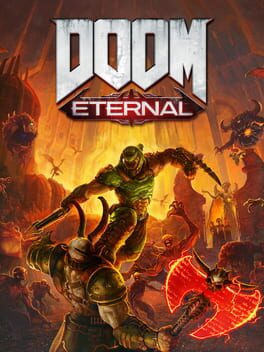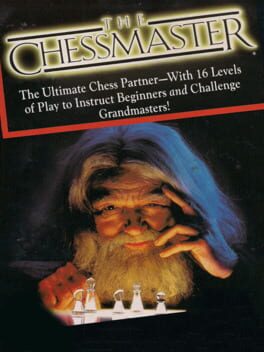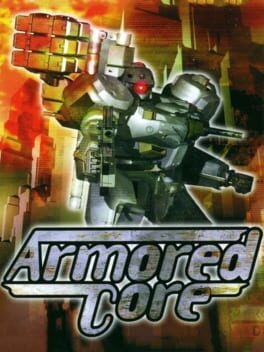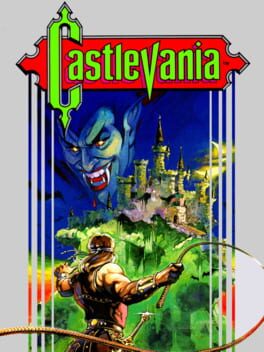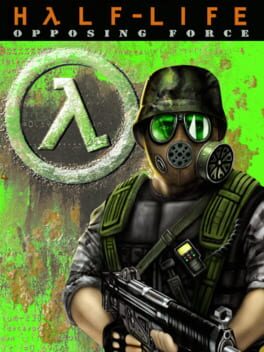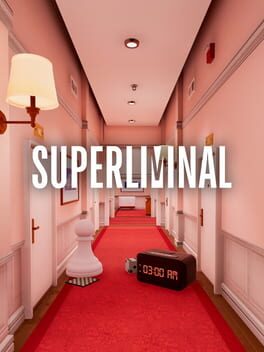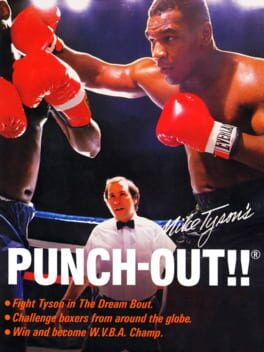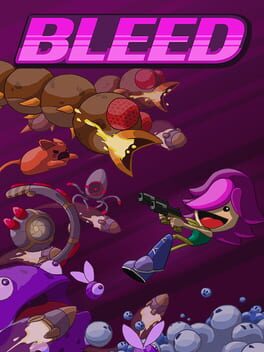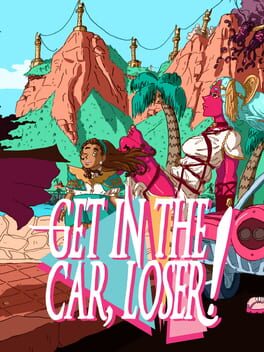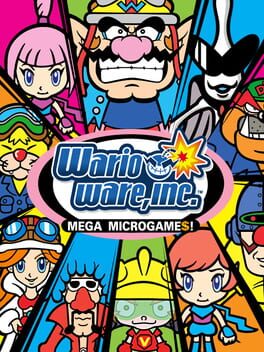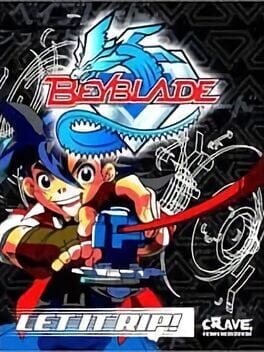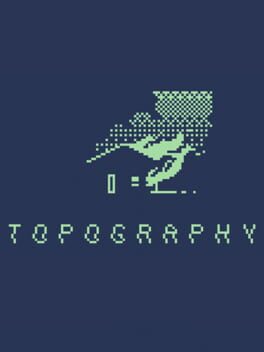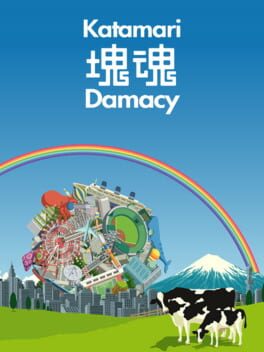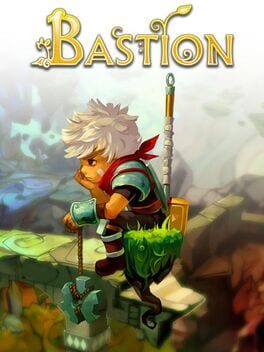Whom
BACKER
2020
When this was revealed, I said "Cool, more DOOM 2016." That couldn't have been a more wrong first impression, and I'm losing my mind over how good this game is. Eternal is all about crowd control and being the fastest thing you've ever fucking played. 2016 is honestly quaint in comparison...I loved that game, but I can't imagine going back to the constant cycle of being locked in a room, fighting a few waves with your basically infinite ammo, and moving to the next room that does the same. I originally thought that game was frantic and fast-paced, but the sensory overload and forced flow state of Eternal blows that game out of the water in every way.
I should mention that FUCKING "mortally challenged" joke that is like attack helicopter-tier Gamer bro "anti-SJW" garbage and they repeat it over and over throughout the whole game. I wouldn't mind it so much if I didn't have to hear it CONSTANTLY. Someone was clearly proud of that and I hate them for it. I guess I shouldn't have expected much better...the joy of this game is in its unrelenting immaturity. DOOM 2016 tried to still be 'classy' and grounded in a way that this just has no interest in replicating.
That's the worst and the best of Eternal, if I think about it. It's a pain in the ass and almost sickeningly masculine. Doomguy ascends from action-hero-cool to horny-audio-logs-calling-him-a-god cool. It's pretty obnoxious at times, but moreso admirable in how boldly ridiculous the whole thing is. It's in no way self-conscious, instead being such a silly over-the-top power fantasy that you can't help but be charmed. There's none of the weak attempts at being taken seriously that plague AAA games, and that opens up DOOM Eternal to things its predecessor wouldn't have dreamed of. Environments are abstract and overwhelmingly "gamey," fitting in perfectly with the drastically expanded movement systems and coming together into a whole so satisfying that I actually LOVED first person platforming. Who knew it was possible?
The new combat loop is a brilliant innovation that is literally the biggest breakthrough in the fps genre in decades. I'm not sure how to really put into words the amount that this adds. I'll have to write about it on its own sometime. I love how this game makes you play it on its own terms. If you're playing on ultra-violence, at least, you can't get away with just being good at first person shooters like you could with 2016 and most of the rest of the genre. No, mastering The Loop is absolutely essential and forced me out of my comfort zone in such an exciting way. Nothing feels like this game. Nothing moves like this game. Nothing is like this game.
As much as I've loved calling Amid Evil my favorite first person shooter and love how it looks on my profile, DOOM Eternal clearly stands above every previous fps. Somehow id managed to reinvent the genre that they effectively launched with their original classics. Good fucking lord.
I should mention that FUCKING "mortally challenged" joke that is like attack helicopter-tier Gamer bro "anti-SJW" garbage and they repeat it over and over throughout the whole game. I wouldn't mind it so much if I didn't have to hear it CONSTANTLY. Someone was clearly proud of that and I hate them for it. I guess I shouldn't have expected much better...the joy of this game is in its unrelenting immaturity. DOOM 2016 tried to still be 'classy' and grounded in a way that this just has no interest in replicating.
That's the worst and the best of Eternal, if I think about it. It's a pain in the ass and almost sickeningly masculine. Doomguy ascends from action-hero-cool to horny-audio-logs-calling-him-a-god cool. It's pretty obnoxious at times, but moreso admirable in how boldly ridiculous the whole thing is. It's in no way self-conscious, instead being such a silly over-the-top power fantasy that you can't help but be charmed. There's none of the weak attempts at being taken seriously that plague AAA games, and that opens up DOOM Eternal to things its predecessor wouldn't have dreamed of. Environments are abstract and overwhelmingly "gamey," fitting in perfectly with the drastically expanded movement systems and coming together into a whole so satisfying that I actually LOVED first person platforming. Who knew it was possible?
The new combat loop is a brilliant innovation that is literally the biggest breakthrough in the fps genre in decades. I'm not sure how to really put into words the amount that this adds. I'll have to write about it on its own sometime. I love how this game makes you play it on its own terms. If you're playing on ultra-violence, at least, you can't get away with just being good at first person shooters like you could with 2016 and most of the rest of the genre. No, mastering The Loop is absolutely essential and forced me out of my comfort zone in such an exciting way. Nothing feels like this game. Nothing moves like this game. Nothing is like this game.
As much as I've loved calling Amid Evil my favorite first person shooter and love how it looks on my profile, DOOM Eternal clearly stands above every previous fps. Somehow id managed to reinvent the genre that they effectively launched with their original classics. Good fucking lord.
1991
Now I know the question on all our minds: "Is chess a solved game? Have computers made human play irrelevant?" You may rest comfortably, as I commanded The Chessmaster on my Nintendo Entertainment System to solve a board at the starting position for mate. It could not do it. Another point for humanity.
1997
1986
It's hard for me to think about Castlevania without also thinking about Dark Souls, despite me having played the former for much longer. This isn't even the game in the series which Souls takes its influence from, but yet they're still so bound together in my mind.
The way you must commit fully to jumps (as there's no correction mid-jump) reminds me a lot of the way you're locked into long attack animations in Dark Souls, and the effect is similar. The player must be incredibly deliberate, knowing exactly what they want to do and executing without hesitation. For the longest time, I played games in a cowardly manner. I would constantly nope out on jumps and have zero confidence in my actions. That only changed as I entered adulthood and played Dark Souls for the first time, and what I learned from that experience finally carried me through Castlevania, which I had slammed my head against my whole life. It feels fantastic.
Beyond that, the two are similar in that they both the player to push through tight sequences and learn every inch of them before moving on. There is little punishment for death, only another try. But it's not "clear at any cost". So much of what makes these games engaging is that you must not only get through stages, you must get through them well to take on the challenges at the end. The clearest example of this is the "boss run": working through the stage as efficiently and perfectly as possible so as to make it to the boss with as much health as possible. This is a fantastic feeling rarely found in platformers, and it's so welcome here.
Another childhood favorite down. I love it.
-
Played on the MiSTer FPGA.
The way you must commit fully to jumps (as there's no correction mid-jump) reminds me a lot of the way you're locked into long attack animations in Dark Souls, and the effect is similar. The player must be incredibly deliberate, knowing exactly what they want to do and executing without hesitation. For the longest time, I played games in a cowardly manner. I would constantly nope out on jumps and have zero confidence in my actions. That only changed as I entered adulthood and played Dark Souls for the first time, and what I learned from that experience finally carried me through Castlevania, which I had slammed my head against my whole life. It feels fantastic.
Beyond that, the two are similar in that they both the player to push through tight sequences and learn every inch of them before moving on. There is little punishment for death, only another try. But it's not "clear at any cost". So much of what makes these games engaging is that you must not only get through stages, you must get through them well to take on the challenges at the end. The clearest example of this is the "boss run": working through the stage as efficiently and perfectly as possible so as to make it to the boss with as much health as possible. This is a fantastic feeling rarely found in platformers, and it's so welcome here.
Another childhood favorite down. I love it.
-
Played on the MiSTer FPGA.
This infinitely more action-focused spin on HL1 is a good time, being a slightly more traditional shooter experience than the original. It's straightforward and quickly throws a huge arsenal at the player, leaving how to approach combat encounters as the main concern rather than the light puzzling which defined Half-Life, though there is still a bit of that. The last few chapters do start to fall apart a bit with encounters that are too much of a pain in the ass even on Normal, but the overall experience is still pretty satisfying.
I played this with a trackball to try and learn to play games with one while I sit back on the couch, and I'd say it was a good training game and I'd like to continue trying with more shooters in the future.
I played this with a trackball to try and learn to play games with one while I sit back on the couch, and I'd say it was a good training game and I'd like to continue trying with more shooters in the future.
2019
So...that was one of the greatest things I've ever played.
I've never been asked to think this way before. That alone makes Superliminal a worthwhile experience, but it's so packed full of ideas pushing it further and further and further that it ascends to something truly great.
Playing this game is like getting to experience as an adult what it felt like to be a toddler playing with simple toys and random objects just to figure out how the world works. It awakens that long-dormant part of the brain that I haven't experienced since being a young child myself. It's fucking magical, and nearly every area I was dropped into gave me multiple of those pure giggles that come from making something work in a way you'd never considered before. It's the sheer stress, fear, uncertainty, and joy of learning condensed into the most tightly bound package possible. Plus the genuine love for the player that Superliminal radiates feels like a warm hug.
---
I will say: take the derealization / dissociation warning seriously. I've struggled with these things and this game was not a trigger for me, but I can absolutely imagine it being one if I played it in the wrong moment. Just know your limits...I think this has real therapeutic value when it comes to those issues, but the risks are real too.
I've never been asked to think this way before. That alone makes Superliminal a worthwhile experience, but it's so packed full of ideas pushing it further and further and further that it ascends to something truly great.
Playing this game is like getting to experience as an adult what it felt like to be a toddler playing with simple toys and random objects just to figure out how the world works. It awakens that long-dormant part of the brain that I haven't experienced since being a young child myself. It's fucking magical, and nearly every area I was dropped into gave me multiple of those pure giggles that come from making something work in a way you'd never considered before. It's the sheer stress, fear, uncertainty, and joy of learning condensed into the most tightly bound package possible. Plus the genuine love for the player that Superliminal radiates feels like a warm hug.
---
I will say: take the derealization / dissociation warning seriously. I've struggled with these things and this game was not a trigger for me, but I can absolutely imagine it being one if I played it in the wrong moment. Just know your limits...I think this has real therapeutic value when it comes to those issues, but the risks are real too.
YO ADRIAN, I DID IIIITTT
As a kid I desperately wanted to be good at this game but could never get past Bald Bull 1. Today I beat Tyson in one of those anticlimaxes where you do it on your first try of the day before your head's even really in it. I thought the fight was over and I was just warming up, but ended up fulfilling a childhood dream.
Tyson is such an anti-boss, punishing you for using the pattern recognition skills that defined the rest of the game. His utter disregard for the rules of his own game make him stand larger-than-life in our memories, and while that could definitely be considered asshole design...Super Macho Man works just as well as the proper final boss, with the dream fight just being a bonus. Maybe that's just how I justify it to myself, but regardless the result is endlessly satisfying. God bless this game.
As a kid I desperately wanted to be good at this game but could never get past Bald Bull 1. Today I beat Tyson in one of those anticlimaxes where you do it on your first try of the day before your head's even really in it. I thought the fight was over and I was just warming up, but ended up fulfilling a childhood dream.
Tyson is such an anti-boss, punishing you for using the pattern recognition skills that defined the rest of the game. His utter disregard for the rules of his own game make him stand larger-than-life in our memories, and while that could definitely be considered asshole design...Super Macho Man works just as well as the proper final boss, with the dream fight just being a bonus. Maybe that's just how I justify it to myself, but regardless the result is endlessly satisfying. God bless this game.
2012
I played this a bit around its time of release, and I just now went through the whole thing.
There's a kind of simple earnestness that's special to the early indie revolution, especially before gamergate made everything so bitter and hateful. There's a sense of wonder in those years, like every dev was just SO excited that they got to make games, too. The obvious fourth wall breaking and dialogue poking fun at longstanding genre conventions are relics of a time when we all sat wide-eyed at all the games that felt like they were made by real people for once, people we could hang out with and who loved games themselves.
We take that all for granted now, but when you go back to a game like this, it's nice to sink back into the hope we all had at that moment. As gaming became democratized like it never was before, we got little beautiful passion projects like this.
There's a kind of simple earnestness that's special to the early indie revolution, especially before gamergate made everything so bitter and hateful. There's a sense of wonder in those years, like every dev was just SO excited that they got to make games, too. The obvious fourth wall breaking and dialogue poking fun at longstanding genre conventions are relics of a time when we all sat wide-eyed at all the games that felt like they were made by real people for once, people we could hang out with and who loved games themselves.
We take that all for granted now, but when you go back to a game like this, it's nice to sink back into the hope we all had at that moment. As gaming became democratized like it never was before, we got little beautiful passion projects like this.
I expected this to be a super fun queer-as-hell audiovisual treat, and it is that with all the lovely dialogue I hoped for, but what I didn't expect was getting the greatest piece of antifascist art that gaming has produced. Get in the Car, Loser is absurdly direct and makes no attempt to hide its messaging. It knows that when the shit hits the fan like it has in the real world, the fight against evil has to be proactive. When it's violent and carries the threat of violence on an even more massive scale, we've gone past the point where rational debate maintaining ideologically pure pacifism are enough. It is a fight, and while GitCL makes a point not to encourage pointless bloodlust, it recognizes that we can't ignore what's been put in front of us. The fight must be fought.
It's so gay. It's so pretty. The tunes are incredible. The battle system is really novel (though I will admit, not explained very well by the game). I just want to hear these characters' banter go on and on and on. This game is made for the internet-raised who got front-row seats to the surge in reactionary garbage in the 2010s that got us to where we are today. It's for the queers intimately familiar with our enemy, many of us barely escaping getting sucked into their world. I've never seen such a grand production made for MY people in the spirit of OUR time. GOD I love this. I cried at the wave of triumph as I defeated the Machine Devil and I'm still recovering from the emotional weight of that success.
Played through Proton on Linux. I'm going to start putting this message on things unless/until an option is added to Backloggd.
I WON'T FALTER IN THE FACE OF EVIL!
It's so gay. It's so pretty. The tunes are incredible. The battle system is really novel (though I will admit, not explained very well by the game). I just want to hear these characters' banter go on and on and on. This game is made for the internet-raised who got front-row seats to the surge in reactionary garbage in the 2010s that got us to where we are today. It's for the queers intimately familiar with our enemy, many of us barely escaping getting sucked into their world. I've never seen such a grand production made for MY people in the spirit of OUR time. GOD I love this. I cried at the wave of triumph as I defeated the Machine Devil and I'm still recovering from the emotional weight of that success.
Played through Proton on Linux. I'm going to start putting this message on things unless/until an option is added to Backloggd.
I WON'T FALTER IN THE FACE OF EVIL!
Can a game be carried by piles of frantic creativity bound together only by the language of games that we've all internalized? After throwing away all context and tutorialization, every bit of the growing complexity that the medium has embraced over the years, do games...work? Can you figure out what to do? Are they fun? Can they still be expressive and beautiful? Still challenging? Can they still feel good in your hands? Or really, can they be good?
Apparently so.
Apparently so.
2001
2020
The internet-raised are only beginning to translate the world we inhabited into art. It's a task that requires starting from nowhere, as the things felt were wholly new and differed by niche and micro-era in ways that are difficult to even communicate. I imagine this'll be a project that lasts as long as we're alive, and it's fascinating seeing the beautiful early attempts we've had since Christine Love really kicked it all off.
-
"in the teenage mind, age is like a medal"
"i wish i could be comforted by honesty again"
"i think of people as places
and i guess i just couldn't stay"
-
"in the teenage mind, age is like a medal"
"i wish i could be comforted by honesty again"
"i think of people as places
and i guess i just couldn't stay"
2018
I had a whole review written out and it accidentally got deleted. At first that just took the wind out of my sails, but I think if I want to be true to the game I need to get up and go back out there again. Push bouldy back up, yknow?
One thing that keeps popping back up in my mind is that Hades fills a similar role as something like 12 Angry Men, where much of the appeal lies in the player's awe at the sheer perfectionism on display. Every single element is placed exactly where it needs to be to accomplish what the game set out to do. Hades is a game of masters joining together to prove their mastery together by creating a game which displays such prowess in every element of game development that you can't help but love it. It will continue to top GOAT lists for a very long time not from innovation or historical importance, but because of a sort of generalized high quality which seeps into each and every piece of this experience.
That's not to say that Hades is a dry vehicle for showcasing technical skill, though. No, the game is built with so much love and care for the really touchy thematic territory it explores. Abuse, and the politics and emotions of forgiveness, endless cycles and finding joy within them (is there any wonder you befriend Sisyphus so quickly?) are the bigger ones, but that's far from all there is. Supergiant's work here is just oozing with things to say and delicate issues to explore. I chose to write this review at the credits, and I know that there is quite a bit left to do, so I won't make any statements too concrete about these since there's a good chance I haven't seen large amounts of the relevant material. I do find myself wondering if its views on forgiveness and moving on suggest an outlook which is too dismissive of those who cut off toxic and abusive family, but I find so much textual evidence going in very different directions that I'm not fully sure how to sort that out. Needless to say, I believe that the hearts of the writers are in the right place, I only wonder if they stumble here.
Other than that, it echoes Dark Souls, Gurren Lagann, and even "The Myth of Sisyphus" with probably the most important principle I've taken from art and used in my own life. This thought is the secret thread that connects nearly everything that resonates with me, so I just want to end lingering on it:
Life is found in hot blooded defiance against the inevitable.
-
Played on Linux using Proton.
One thing that keeps popping back up in my mind is that Hades fills a similar role as something like 12 Angry Men, where much of the appeal lies in the player's awe at the sheer perfectionism on display. Every single element is placed exactly where it needs to be to accomplish what the game set out to do. Hades is a game of masters joining together to prove their mastery together by creating a game which displays such prowess in every element of game development that you can't help but love it. It will continue to top GOAT lists for a very long time not from innovation or historical importance, but because of a sort of generalized high quality which seeps into each and every piece of this experience.
That's not to say that Hades is a dry vehicle for showcasing technical skill, though. No, the game is built with so much love and care for the really touchy thematic territory it explores. Abuse, and the politics and emotions of forgiveness, endless cycles and finding joy within them (is there any wonder you befriend Sisyphus so quickly?) are the bigger ones, but that's far from all there is. Supergiant's work here is just oozing with things to say and delicate issues to explore. I chose to write this review at the credits, and I know that there is quite a bit left to do, so I won't make any statements too concrete about these since there's a good chance I haven't seen large amounts of the relevant material. I do find myself wondering if its views on forgiveness and moving on suggest an outlook which is too dismissive of those who cut off toxic and abusive family, but I find so much textual evidence going in very different directions that I'm not fully sure how to sort that out. Needless to say, I believe that the hearts of the writers are in the right place, I only wonder if they stumble here.
Other than that, it echoes Dark Souls, Gurren Lagann, and even "The Myth of Sisyphus" with probably the most important principle I've taken from art and used in my own life. This thought is the secret thread that connects nearly everything that resonates with me, so I just want to end lingering on it:
Life is found in hot blooded defiance against the inevitable.
-
Played on Linux using Proton.
2004
2011
Supergiant is unique among the earlyish indie revolution studios for arriving on day 1 with technically proficient visuals and sound design, standing out as the most presentable of the bunch. Their contemporaries tended to be focused on a then-radical return to the mechanical purity of the NES era or pushing procedural generation out of the realm of terminal games into the light of accessibility, while Supergiant instead focused first and foremost on making something polished to standards that at the time only really existed in the realm of AAA.
And that's what makes going back to the start of Supergiant so weird: they had all the ability in the world to make a masterpiece and polish it to perfection, yet seemingly had no ideas they wanted to flesh out. Bastion just kind of piddles around, never really having anything to say or do. Its barebones mechanics, flashy hand-painted visuals, and ever-present solemn folksy narration prepare the player for some kind of emotional ride, experimental revelation, or strong thematic core which never really comes. It's disappointing, since god knows you're not having fun with each new weapon being slightly more annoying and less satisfying to use than the last.
Granted, this came out at a time where attempting to be "serious" in any remotely popular games was still very much in its infancy. Outside of the world of text-based interactive fiction, this was still the era of Heavy Rain silliness and its backlash. As the preconditions for gamergate fell into place, tension mounted over games trying to be anything besides simply fun tests of mechanical mastery. To be perfectly blunt, the fledgling indie gaming audience was not really willing to accept games which were primarily focused on trying to say things. To many of them, political messaging and narrative complexity were exactly what the indie movement existed as a reaction to. They missed the games where running and jumping were all you really needed.
Bastion did, in its own way, fly in the face of that. There's next to nothing to dig into in terms of mechanics, with the game instead pushing you to listen to the narration and let your primary takeaways be from the narrative and aesthetics This was not in any way new to gaming, of course, but for indie gamers of the time, it certainly stood out. While not particularly thematically potent in the grand scheme of things, Bastion would sure seem that way if you had been grinding your teeth while trying Super Meat Boy levels over and over for the past few months. I have to give this game at least some credit for that, even if it's banal and tame to more modern sensibilities. That is, MY more modern sensibilities.
Also, I say "technically proficient" when I refer to the art instead of "good" because to be completely honest, I ignored Bastion back then because I found it extremely muddy and busy, which I still think it is. If this game counts the number of times you fall off the map anywhere, that alone would be a testament to how awful the visual style is for actually making sense of spaces. They've improved much on this front nowadays, but I'd be lying if I said they've completely gotten past it even in Hades.
Side Note: I've always confused this game with Braid, which I still haven't played to this day due to its own ugly-ass art style.
And that's what makes going back to the start of Supergiant so weird: they had all the ability in the world to make a masterpiece and polish it to perfection, yet seemingly had no ideas they wanted to flesh out. Bastion just kind of piddles around, never really having anything to say or do. Its barebones mechanics, flashy hand-painted visuals, and ever-present solemn folksy narration prepare the player for some kind of emotional ride, experimental revelation, or strong thematic core which never really comes. It's disappointing, since god knows you're not having fun with each new weapon being slightly more annoying and less satisfying to use than the last.
Granted, this came out at a time where attempting to be "serious" in any remotely popular games was still very much in its infancy. Outside of the world of text-based interactive fiction, this was still the era of Heavy Rain silliness and its backlash. As the preconditions for gamergate fell into place, tension mounted over games trying to be anything besides simply fun tests of mechanical mastery. To be perfectly blunt, the fledgling indie gaming audience was not really willing to accept games which were primarily focused on trying to say things. To many of them, political messaging and narrative complexity were exactly what the indie movement existed as a reaction to. They missed the games where running and jumping were all you really needed.
Bastion did, in its own way, fly in the face of that. There's next to nothing to dig into in terms of mechanics, with the game instead pushing you to listen to the narration and let your primary takeaways be from the narrative and aesthetics This was not in any way new to gaming, of course, but for indie gamers of the time, it certainly stood out. While not particularly thematically potent in the grand scheme of things, Bastion would sure seem that way if you had been grinding your teeth while trying Super Meat Boy levels over and over for the past few months. I have to give this game at least some credit for that, even if it's banal and tame to more modern sensibilities. That is, MY more modern sensibilities.
Also, I say "technically proficient" when I refer to the art instead of "good" because to be completely honest, I ignored Bastion back then because I found it extremely muddy and busy, which I still think it is. If this game counts the number of times you fall off the map anywhere, that alone would be a testament to how awful the visual style is for actually making sense of spaces. They've improved much on this front nowadays, but I'd be lying if I said they've completely gotten past it even in Hades.
Side Note: I've always confused this game with Braid, which I still haven't played to this day due to its own ugly-ass art style.
